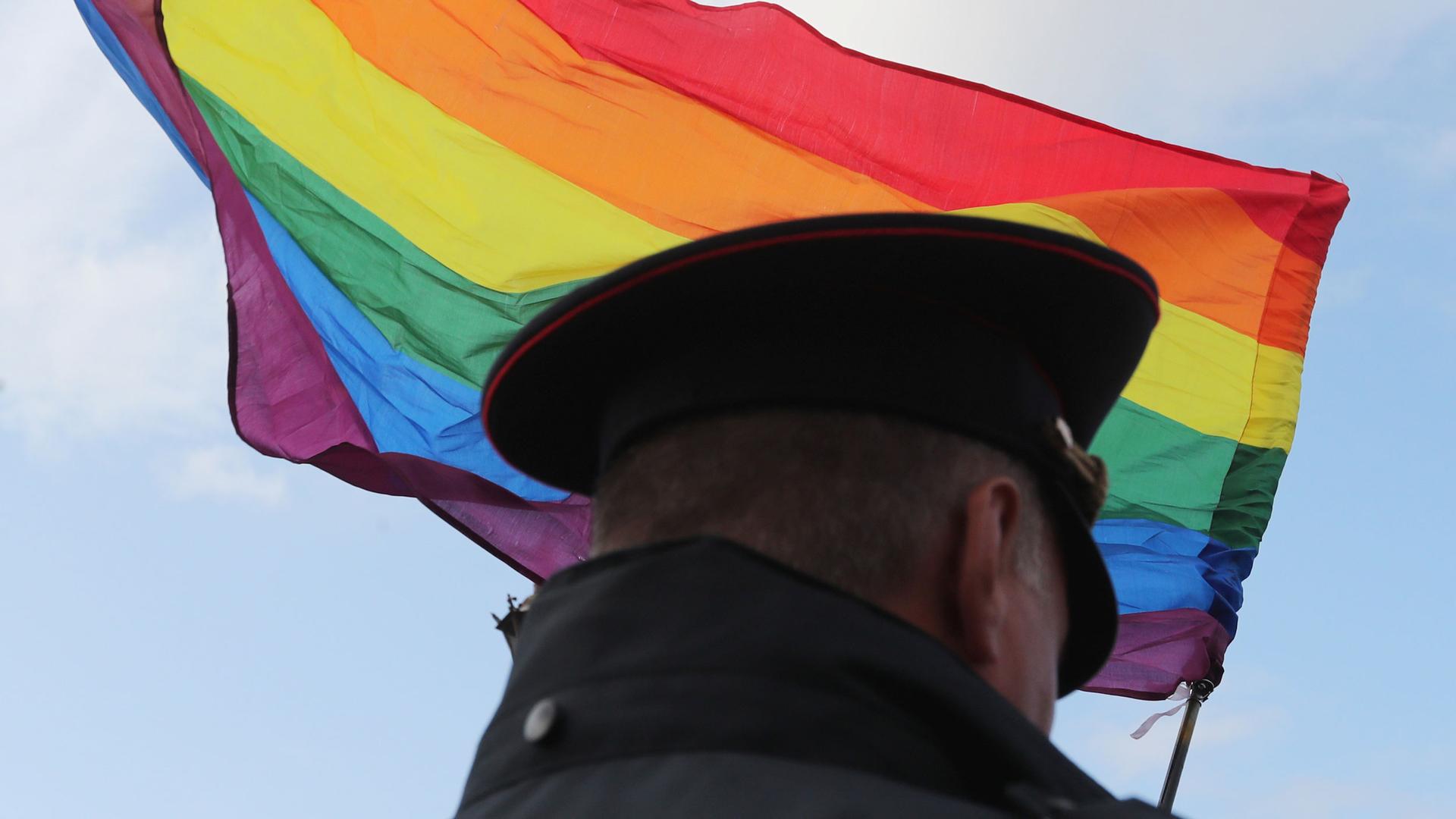Update July 2, 2020: The Central Election Commission of Russia announced Thursday that the country’s plebiscite had passed with nearly 78% of votes in favor of the reform package. According to election officials, voter turnout was over 65%.
As Russia ends a weeklong referendum on Wednesday, the LGBTQ community in the country awaits potentially permanent changes to the country’s constitution. One of the more than 200 proposed amendments up for a vote would enshrine heterosexual marriage as law, and LGBTQ activists say the amendment would make it virtually impossible for the state to ever recognize same-sex marriages.
Marriage equality is just one of the freedoms that queer Russians and allies are fighting for — another freedom currently not granted is the right to display rainbow flags. John Sullivan, the US ambassador to Russia, had a clear message on this last week as he wrapped up Pride month in Moscow.
Related: New documentary follows LGBTQ people fleeing persecution in Chechnya
“LGBTI rights are human rights. And human rights are universal.”
“LGBTI rights are human rights. And human rights are universal. It’s as simple as that,” he said in a video statement. “Our embassy is displaying a rainbow flag in solidarity with these efforts.”
But hanging a Pride flag in Russia is not simple. It’s illegal for the flag to fly on a pole outside an embassy or other government building in Russia. But, technically, hanging the flag between two balconies is allowed. The US Embassy in Moscow chose that route on June 25.
Daniel Levkin, a 21-year-old gay man who lives in Moscow, went by the embassy this week. He says seeing the flag made him feel happy.
“I was surprised to see the rainbow flag at the embassy because, in Russia, the rainbow symbol is prohibited,” Levkin said. “And I’m so proud when I saw this. This is a freedom.”
Levkin posted a picture of himself with the flag on Instagram. The comments on his post — and much of the overall reaction online — has been positive. “The young generation [is] more tolerant than our parents and grandparents,” he added.
Still, the Pride flag remains a symbol of “gay propaganda” in Russia and is belittled by high-level authorities. The Russian Foreign Ministry commented on a Facebook photo that the US Embassy posted showing the flag. Along with a link to a 1977 song called “El Bimbo,” the comment — written in English — reads, “Just to keep u in a joyful and gay mood in such hard time for America, whose idea has to be made great again.”
Further explanation was not offered. But that Facebook comment was followed by anti-LGBTQ activists picketing and stomping on rainbow flags outside the US Embassy.
Related: Petraeus on Russian bounties in Afghanistan: ‘We were looking for this kind of activity’
But it wasn’t just American officials in Russia publicly supporting LGBTQ rights. The British embassy in Moscow hung their own rainbow flag out front. Ambassador Alison LeClaire, who represents Canada in Russia, criticized the lack of protections for LGBTQ Russians in a video online. She says they’re living in a hostile environment.
“In Russia, this situation is compounded by an increase in violence and intimidation of the community by local authorities and other actors, and proposals for constitutional amendments that, if adopted, would lead to an increasingly less inclusive national legal framework,” LeClaire said.
Related: This trans woman sparked Kuwait’s biggest LGBTQ movement
LeClaire’s direct comments on these proposals prompted allies of President Vladimir Putin to speak out. On the state-run Russian television show “60 Minutes,” Pyotr Tolstoy of the United Russia party said LeClaire will “burn in hell.”
“This woman, the ambassador of Canada, is a typical representative of this type of single, middle-aged ‘dame’ who are activists for the promotion of LGBTQ agendas in Europe, in America, in Canada, and now, here,” Tolstoy added.
“I believe that Russia is currently closer to [LGBTQ] equality than five years ago. But we need time.”
But Levkin, the 21-year-old from Moscow, thinks LGBTQ rights will eventually make it to Russia.
“I believe that Russia is currently closer to [LGBTQ] equality than five years ago,” he said. “But we need time.”
It’s unclear how much time it will take for Russian law to progress toward equality for the LGBTQ community. Putin is a strong opponent of LGBTQ rights. Along with phrasing around heterosexual marriage, one of the constitutional amendments that preliminary results show has passed in the election this week could keep him in charge until 2036.
Our coverage reaches millions each week, but only a small fraction of listeners contribute to sustain our program. We still need 224 more people to donate $100 or $10/monthly to unlock our $67,000 match. Will you help us get there today?
